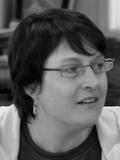Presentation: Tweet"On the Care and Feeding of Feedback Cycles"
Nothing interrupts the continuous flow of value like bad surprises that require immediate attention: major defects; service outages; support escalations; or even scrapping just-completed capabilities that don't actually meet business needs.
You already know that the sooner you can discover a problem, the sooner and more smoothly you can remedy it. Agile practices involve testing early and often. However feedback comes in many forms, only some of which are traditionally considered testing. Continuous integration, acceptance testing with users, even cohort analysis to validate business hypotheses are all examples of feedback cycles.
This talk examines the many forms of feedback, the questions each can answer, and the risks each can mitigate. We'll take a fresh look at the churn and disruption created by having high feedback latency, when the time between taking an action and discovering its effect is too long. We'll also consider how addressing "bugs" that may not be detracting from the actual business value can distract us from addressing real risks. Along the way we'll consider fundamental principles that you can apply immediately to keep your feedback cycles healthy and happy.
Download slides
